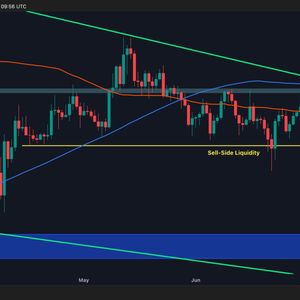Canadian Prime Minister Justin Trudeau’s announcement today that he will resign from his party leadership and prime ministry has opened the door to a government that is potentially less resistant to cryptocurrencies. While the country's provincial regulators have primary authority over digital assets, the change in federal leadership could impact Canada's broader stance on cryptocurrency. Trudeau, who has led the Liberal Party since 2013 and served as prime minister since 2015, cited “internal struggles” as a key factor in his decision to step down. “I can't be the one to carry the Liberal standard into the next election,” Trudeau told a news conference. His resignation comes as the party begins the process of choosing a new leader ahead of Canada's October general election. Trudeau has faced criticism from the crypto community over government actions during the 2022 Freedom Rides protests. Authorities froze cryptocurrency accounts associated with the protests, sparking outrage both domestically and internationally. The incident has also fueled opposition to central bank digital currencies (CBDCs) among U.S. lawmakers, who have held it up as a cautionary tale about government overreach in financial transactions. Related News: Good News from the FED to the Cryptocurrency Market - Bitcoin Enemies are Diminishing One by One The Conservative Party, led by Pierre Poilievre, is currently leading in the polls and is positioned as a strong contender to become Canada’s next prime minister. Poilievre has been a strong supporter of digital assets in the past, advocating cryptocurrencies as a tool for financial freedom. However, his recent silence on the issue has created some uncertainty about his future policies. Poilievre has also gained traction among supporters of US President-elect Donald Trump, increasing his cross-border appeal. It remains to be seen how his government would influence Canada’s crypto policies if he becomes prime minister. Despite the change in federal leadership, Canada’s digital asset regulation will continue to be shaped primarily by the Canadian Securities Administrators (CSA), a coalition of provincial officials and provincial regulators. Unlike the U.S., Canada does not have a central securities regulator like the SEC, meaning crypto-related decisions largely fall to the states. One likely candidate to replace Trudeau is Mark Carney, a former governor of both the Bank of Canada and the Bank of England. While Carney has not officially announced his candidacy, his potential leadership could bring a more cautious approach to crypto. In a 2021 lecture at the Bank for International Settlements, Carney argued that tokens and cryptocurrencies should remain “token value” and stated that stablecoins should be heavily regulated. *This is not investment advice. Continue Reading: Another Trump Case? Cryptocurrency-Hostile Leader Resigns in Economic Powerhouse, New Crypto-Friendly Leader May Arrive



















